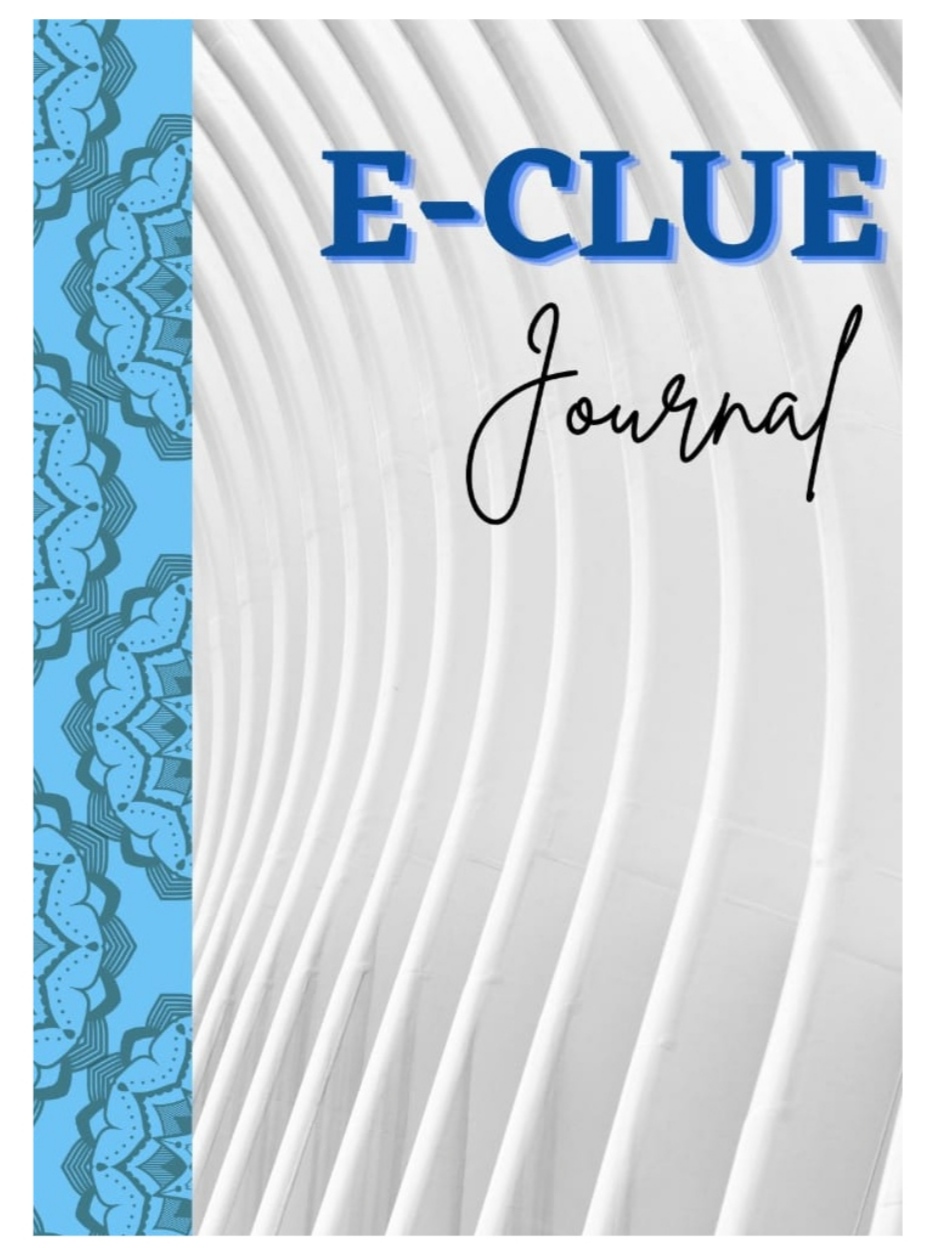How Does Problem Based Learning Work on Students Writing Ability? CAR Study
DOI:
https://doi.org/10.53682/eclue.v11i1.5880Keywords:
PBL Method, EFL’ Writing, Narrative Text, Writing DifficultiesAbstract
The problem based learning method is one of the methods that can be applied in EFL classes especially for students writing skills so that it can create a pleasant learning atmosphere and make learning more active in classroom learning activities The problem based learning model is one of the learning models that can shape scientific behavior social actors and develop students curiosity Learners are initially faced with a problem then followed by a student centered information search process Seeing the importance of this method this study aims to see the extent to which the PBL method can improve students ability to write Narrative text With Classroom Action Research design this study was applied to 20 students of class X In collecting data tests were used to obtain an overview of student achievement each of which was given in each cycle The results of this study show that PBL can improve students narrative text writing skills this can be seen from the percentage of student results in each cycle In addition to making the classroom atmosphere active and participatory PBL also makes students think more critically in solving their problems Students are required to be able to solve their problems both individually and in groups Seeing the important role of this PBL method the results of this study can be used as starting points or corrections for further research< p>
References
Afriani D Wilujeng I Jumadi Kuswanto H 2019 Implementation of Problem Based Learning Model Assisted Edmodo to Measure Students Scientific Communication Skills Journal of Physics: Conference Series 1233 1 012041 https: doi org 10 1088 1742 6596 1233 1 012041
Ali S S 2019 Problem Based Learning: A Student Centered Approach English Language Teaching 12 5 73 78 https: doi org 10 5539 elt v12n5p73
Amin S Utaya S Bachri S Sumarmi Susilo S 2020 Effect of Problem Based Learning on Critical Thinking Skill and Enviromental Attitude Journal for the Education of Gifted Young Scientists 8 2 743 755 https: doi org 10 17478 JEGYS 650344
Batubara B M 2021 The Problems of the World of Education in the Middle of the Covid 19 Pandemic Budapest International Research and Critics Institute Journal BIRCI Journal 4 1 450 457 https: doi org 10 33258 birci v4i1 1626
Cosgun G Atay D 2021 Fostering Critical Thinking Creativity and Language Skills in the EFL Classroom through Problem Based Learning International Journal of Curriculum and Instruction 13 3 2360 2385
Dawilai S Kamyod C Prasad R 2021 Effectiveness Comparison of the Traditional Problem Based Learning and the Proposed Problem Based Blended Learning in Creative Writing: A Case Study in Thailand Wireless Personal Communications 118 3 1853 1867 https: doi org 10 1007 S11277 019 06638 X METRICS
Dwi A 2019 Students Writing Ability on English Descriptive Text at Grade VIII in SMPN 33 Padang Academic Journal of English Language and Education 3 1
Falihah N Rahmawati E Baihaqi A Sultan U Tirtayasa A 2022 EFL Students Difficulties in Writing Narrative Text Journal of English Language Teaching and Cultural Studies 5 1 77 90 https: doi org 10 48181 JELTS V5I1 15026
Farahian M Avarzamani F Rajabi Y 2021 Reflective thinking in an EFL Writing course: To what level do portfolios improve reflection in writing? Thinking Skills and Creativity 39 100759 https: doi org 10 1016 J TSC 2020 100759
Hadi M S Izzah L Paulia Q 2021 Teaching Writing through Canva Application Journal of Languages and Language Teaching 9 2 228 235 https: doi org 10 33394 JOLLT V9I2 3533
Jabarullah N H Iqbal Hussain H 2019 The effectiveness of problem based learning in technical and vocational education in Malaysia Education and Training 61 5 552 567 https: doi org 10 1108 ET 06 2018 0129 FULL XML
Pardosi J D Karo R E V B Sijabat O A S Pasaribu H Tarigan N W P 2019 An Error Analysis of Students in Writing Narrative Text Linguistic English Education and Art LEEA Journal 3 1 159 172 https: doi org 10 31539 LEEA V3I1 983
Pradana M Syarifuddin S 2021 The Struggle Is Real: Constraints of Online Education During the Covid 19 Pandemic Front Educ 6 https: doi org 10 3389 feduc 2021 753776
Rashtchi M Khoshnevisan B 2020 Lessons From Critical Thinking: How To Promote Thinking Skills In EFL Writing Classes European Journal of Foreign Language Teaching 5 1 https: doi org 10 46827 EJFL V5I1 3153
Sari Y I Sumarmi Utomo D H Astina I K 2021 The Effect of Problem Based Learning on Problem Solving and Scientific Writing Skills International Journal of Instruction 14 2 11 26 https: doi org 10 29333 iji 2021 1422a
Shasqia M 2020 Teaching Narrative Text in Junior High School: Digital Story Telling in English as a Foreign Language EFL Context Utamax : Journal of Ultimate Research and Trends in Education 2 1 19 23 https: doi org 10 31849 UTAMAX V2I1 3395
Uztosun M S 2006 Writing English Language Tests New Edition Journal of Theory and Practice in Education 2 2 119 122






